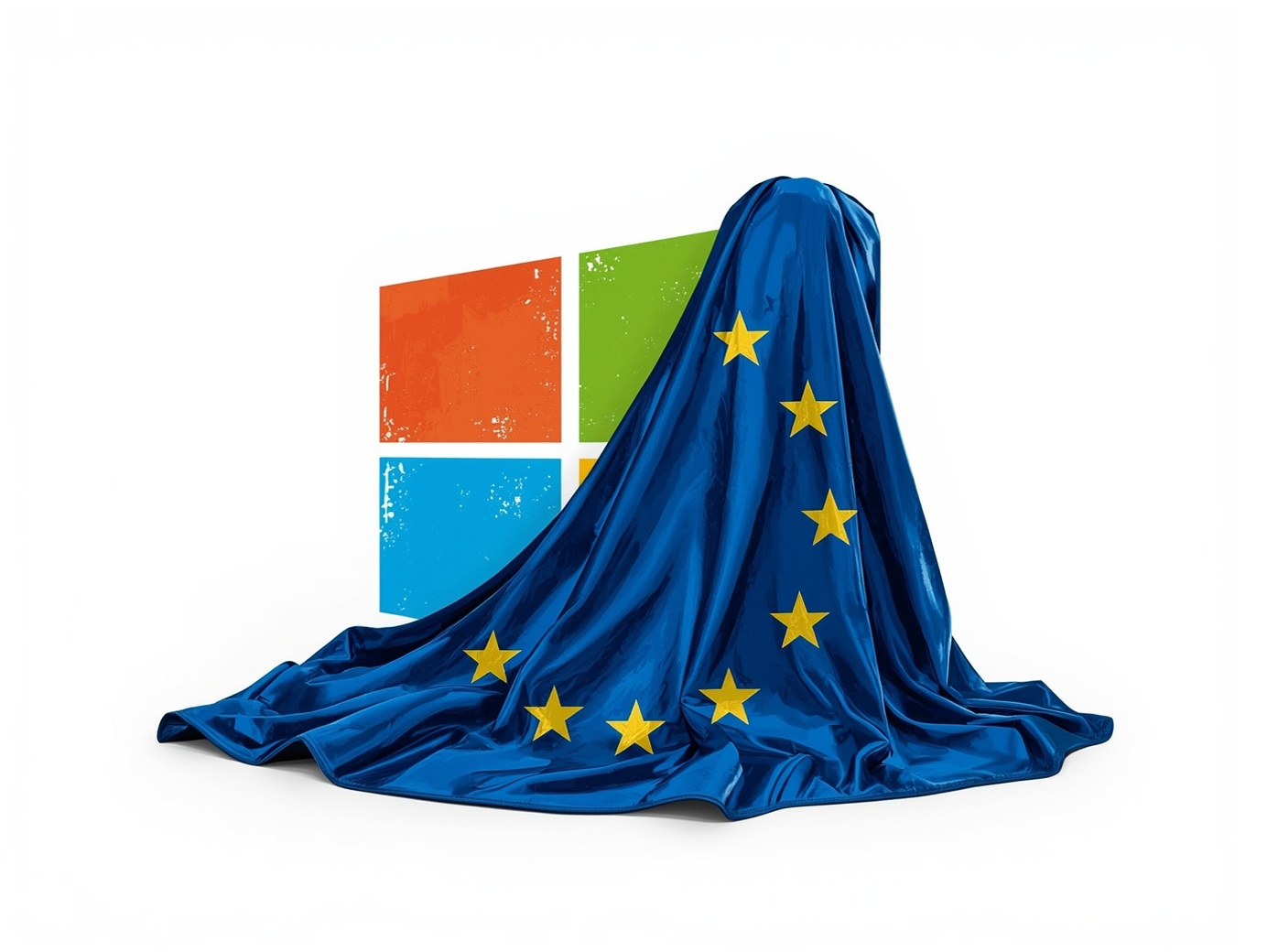
Un gruppo di membri del Parlamento europeo hanno chiesto di abbandonare l’uso interno dei prodotti Microsoft e di passare a soluzioni europee.
La loro iniziativa nasce dalle crescenti preoccupazioni circa la dipendenza delle infrastrutture chiave dalle grandi aziende americane e i potenziali rischi per la sicurezza digitale dell’UE. Gli autori dell’appello ritengono che le istituzioni europee debbano dare l’esempio di indipendenza tecnologica e guidare la transizione verso le proprie piattaforme.
Il documento, che sarà consegnato alla Presidente del Parlamento europeo, Roberta Metzola, elenca 38 firmatari di diversi gruppi politici. Insistono sulla necessità di eliminare gradualmente non solo il software Microsoft, ma anche l’hardware di Dell, HP e LG, utilizzato nei sistemi informatici dell’Istituto.
Ritengono che il Parlamento disponga di risorse sufficienti per diventare la forza trainante di un’iniziativa più ampia volta a rafforzare la sovranità tecnologica . Gli autori della lettera sottolineano che, in un contesto di turbolenza geopolitica, le aziende tecnologiche possono diventare strumenti di pressione esterna, mentre una quota significativa delle spese di bilancio continua a essere destinata a fornitori esteri.
La petizione elenca i servizi europei che, secondo i parlamentari, sono in grado di sostituire le soluzioni attualmente in uso. Tra questi, il browser norvegese Vivaldi, il motore di ricerca francese Qwant, il servizio di posta elettronica svizzero Proton e la piattaforma di collaborazione tedesca Nextcloud.
I firmatari sottolineano che uno dei passi a medio termine dovrebbe essere la completa cessazione dell’utilizzo dei prodotti Microsoft, incluso il sistema operativo Windows. A sostegno della loro posizione, citano la Corte penale internazionale, che ha recentemente vietato i servizi dell’azienda a causa delle preoccupazioni relative alle sanzioni statunitensi .
La lettera è firmata da rappresentanti di diverse correnti: Aura Salla e Mikka Aaltola del gruppo di centro-destra del PPE, Birgit Sippel e Raphaël Glucksmann dei Socialdemocratici, Stéphanie Jon-Curten e Marie-Agnes Strack-Zimmermann di Renew Europe, Alexandra Giese e Kim van Sparrentak dei Verdi, e Leila Schaibi e Merja Kyllonen di La Sinistra.
Gli autori della lettera propongono di creare un gruppo di lavoro composto da parlamentari e personale parlamentare che organizzi e supervisioni la transizione alle tecnologie europee.
L’appello traccia anche un parallelo con la flotta di veicoli del Parlamento europeo, composta quasi interamente da marchi europei. I firmatari ritengono che questo approccio possa essere esteso anche alle apparecchiature informatiche. Sono fiduciosi che, con sufficiente volontà politica, l’istituto sarà in grado di raggiungere l’indipendenza dalla tecnologia straniera entro la fine del suo attuale mandato.
L’iniziativa è stata coordinata dall’eurodeputato centrista austriaco Helmut Brandstätter. Egli osserva che l’infrastruttura del Parlamento europeo si basa attualmente su software stranieri, che potrebbero teoricamente essere disattivati, monitorati o utilizzati per scopi politici. Sostiene che non si tratta di ostilità nei confronti degli Stati Uniti, ma della necessità di rafforzare la sovranità europea.
Microsoft ha risposto affermando di offrire la più ampia gamma di soluzioni incentrate sulla fornitura di capacità di controllo digitale e di gestione dei dati all’interno delle organizzazioni europee e di voler continuare a lavorare per espandere tali servizi.
Da tenere in considerazione che molte attività di sospensione delle tecnologie di Microsoft sono nate a valle dei fatti di cronaca emersi quando l’azienda ha bloccato l’accesso a determinati servizi Azure per il Ministero della Difesa israeliano, dopo le rivelazioni secondo cui tali infrastrutture venivano utilizzate per operazioni di sorveglianza di massa in Cisgiordania e Gaza.
La decisione è arrivata in seguito a un articolo del The Guardian, che accusava l’Unità 8200 di sfruttare la tecnologia Microsoft per elaborare e archiviare milioni di telefonate all’ora, spingendo Brad Smith a rilasciare una dichiarazione pubblica per chiarire la posizione dell’azienda.
Ti è piaciuto questo articolo? Ne stiamo discutendo nella nostra Community su LinkedIn, Facebook e Instagram. Seguici anche su Google News, per ricevere aggiornamenti quotidiani sulla sicurezza informatica o Scrivici se desideri segnalarci notizie, approfondimenti o contributi da pubblicare.

 Cybercrime
CybercrimeLe autorità tedesche hanno recentemente lanciato un avviso riguardante una sofisticata campagna di phishing che prende di mira gli utenti di Signal in Germania e nel resto d’Europa. L’attacco si concentra su profili specifici, tra…
 Innovazione
InnovazioneL’evoluzione dell’Intelligenza Artificiale ha superato una nuova, inquietante frontiera. Se fino a ieri parlavamo di algoritmi confinati dietro uno schermo, oggi ci troviamo di fronte al concetto di “Meatspace Layer”: un’infrastruttura dove le macchine non…
 Cybercrime
CybercrimeNegli ultimi anni, la sicurezza delle reti ha affrontato minacce sempre più sofisticate, capaci di aggirare le difese tradizionali e di penetrare negli strati più profondi delle infrastrutture. Un’analisi recente ha portato alla luce uno…
 Vulnerabilità
VulnerabilitàNegli ultimi tempi, la piattaforma di automazione n8n sta affrontando una serie crescente di bug di sicurezza. n8n è una piattaforma di automazione che trasforma task complessi in operazioni semplici e veloci. Con pochi click…
 Innovazione
InnovazioneArticolo scritto con la collaborazione di Giovanni Pollola. Per anni, “IA a bordo dei satelliti” serviva soprattutto a “ripulire” i dati: meno rumore nelle immagini e nei dati acquisiti attraverso i vari payload multisensoriali, meno…